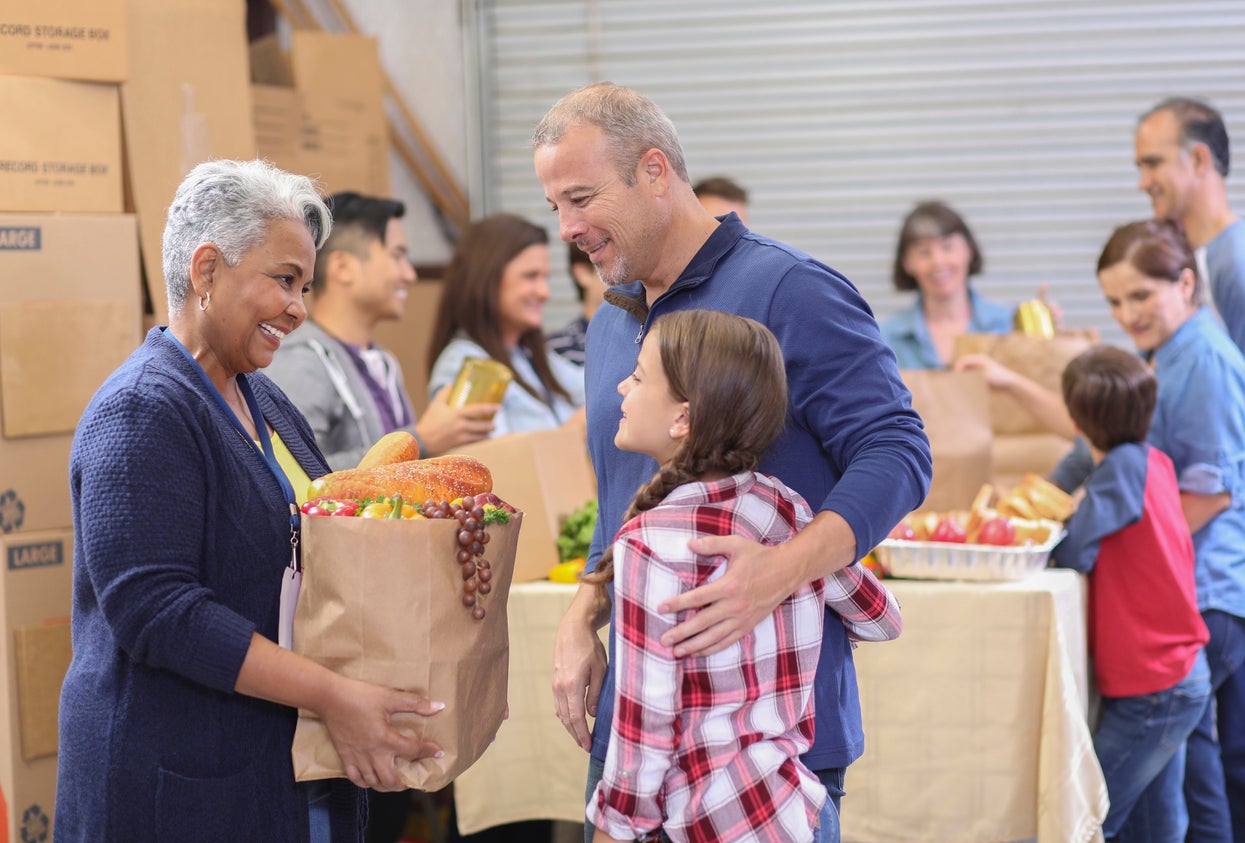Jacob Rees-Mogg got it very wrong on Unicef – when you see children go hungry, you feed them
The United Nations agency responded to the ‘unprecedented crisis’, it is not criticising the government, writes Vincent Wood


“Unicef should be ashamed of itself” is not a phrase that gets banded around a great deal. While no agency is beyond reproach, the United Nations Children’s Fund’s focus on supporting children with developmental and humanitarian aid has been a pretty uncontroversial one for 74 years.
However, this is what Jacob Rees-Mogg said Thursday – claiming that the organisation’s decision to support children in the UK struggling with food poverty was a “political stunt of the lowest order”.
His complaint, that Unicef decided to show up the UK government by feeding the nation’s children, is a deeply unserious one. Allow for a moment that it is possible the UN agency’s UK arm did decide it had a vested vendetta against conservatism. Given that it was founded in 1956, it would appear that it has sat quietly through eight tory prime ministers before deciding it took issue with Boris Johnson’s administration.
It would have quietly bided its time as Margaret thatcher ended free school milk, and as David Cameron’s administration decided to abolish child poverty targets. It would have overlooked Theresa May’s decision to scrap the civil service’s child poverty unit as food bank use continued to rise and one in three Trussell Trust parcels went to families with children. It would have patiently waited as – according to the government’s own data – the number of children in relative poverty in the UK rose to 4.2 million in the year 2018/19. Through all this time Unicef representatives will have bitten their tongues, only to strike the present government with that which it fears most – free breakfasts for underprivileged children in Southwark over the Christmas holidays.
The difference of course between the litany of measures and moments that has seen the issue of child poverty stagnate in our country and now is a pandemic that has only served to exacerbate the issue. Responding to the comments, Unicef UK said the agency had provided “a one-off domestic response, launched in August, to provide support to vulnerable children and families around the country during this crisis period”.
You would think this would be a fairly clean-cut win for a government that has no problem ignoring things that tackle hunger, while benefiting from their results. Throughout lockdown the words “food bank” seldom passed the lips of ministers praising charity efforts – but demand surged and volunteers persisted.
In October half term, when the government decided it would not extend free school meals for children left hungry during the break, it saw no issue in quietly reaping the rewards of public empathy. This too was another opportunity for the front bench to shrug off the matter as an issue born from the pandemic, and carry on with other business.
But, unfortunately, our government loves a scrap. Rees-Mogg’s speech was only just in contention for the most controversial thing said yesterday, thanks to Liz Truss’ comments on equalities. Beyond their own politics, both have remained popular with the Conservative base precisely for their willingness to put themselves in the middle of these rows.
But the leader of the House’s comments stick in the throat in the same way as October’s debate over school meals did. That too could have been non-political. Marcus Rashford did his level best to make sure it wasn’t about party affiliation. But then the Tory backbenchers piled in, and it became one of the most furious and visceral political moments of a deeply difficult and polarising year.
Now, just as was the case then, Tories in want of a spotlight would do well to focus on the substance instead of sparking the catchiest row they can attract. If Jacob Rees-Mogg is so certain the government has passed the test on child poverty, he should wonder why charities are begging his government not to remove a £20 add on to universal credit in April.
He should wonder why people with no recourse to public funds remain unable to access support for their families – despite the prime minister’s surprise that such a thing should be allowed to happen in our country in May. He should wonder why our food bank’s continue to see rising rates of hunger year on year.
When it comes down to it Unicef is responding, as volunteers and charities have throughout the pandemic, that when you see children going hungry, you feed them. There’s nothing political about that.




Join our commenting forum
Join thought-provoking conversations, follow other Independent readers and see their replies
Comments